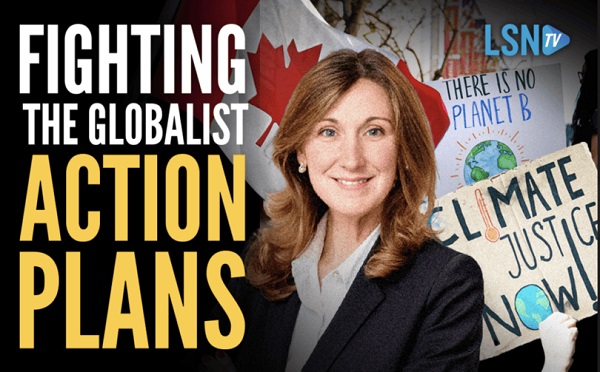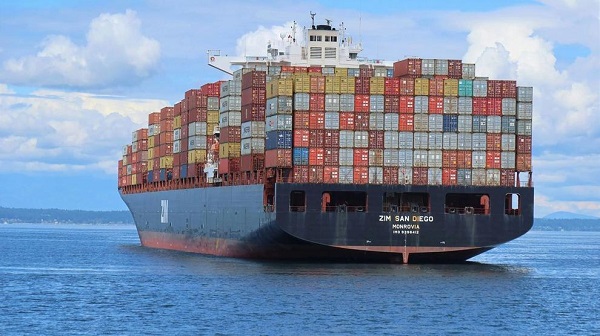Environment
Activist shares how Canadians can fight globalism through local action

From LifeSiteNews
Maggie Braun, the founder of Kicking International Council out of Local Environmental Initiatives, told LifeSiteNews that there are ‘small wins happening every day’ against globalism by pro-local Canadians.
A pro-freedom advocate told LifeSiteNews that many Canadians have already successfully stood up to the meddling of the United Nations’ globalist agenda, encouraging all citizens to know their rights under the law to protect their local communities.
During a November 20 discussion at the Rankin Culture and Recreation Centre in Pembroke, Ontario, about the ways in which the United Nations are breaking municipal laws and violating property rights in an effort to achieve their globalist goals, Maggie Braun, the founder of Kicking International Council out of Local Environmental Initiatives (KICLEI), shared just what Canadians have been doing to successfully stand up for their local communities.
“There’s small wins happening every day,” Braun told LifeSiteNews in an interview before the discussion.
“Counselors opening up and communicating with the community and our concerns and just bridging that gap and sharing and exchanging information with them and slowly watching them start to make moves to withdraw from the programs or shut down renewable energy projects that don’t make sense in their area,” she shared as an example of successful pushback.
KICLEI is an organization dedicated to empowering local governments to address the needs in their community, and not to blindly follow the direction of groups like the UN.
The group also works to ensure “every Canadian enjoys the right to privacy, property, and self-determination, while fostering respect for our cultural and regional diversity.”
According to Braun, her goal is to “advocate for local environmental stewardship programs over globally mandated climate action plans” by informing Canadians of their property rights, particularly with respect to the attempted implementation of the UN’s climate policies.
“We’ve discovered that these programs are coming in through an organization called ICLEI (Local Governments for Sustainability) and the Federation of Canadian Municipalities, who have brought certain programs down to the municipal level to drive climate action plans,” Braun explained.
Following this discovery, Braun has been working to bring awareness to the issue and persuade city and town councils to vote against UN recommendations which would undermine their citizens’ sovereignty. She revealed that her first victory was in Thorold, Ontario.
Braun explained that a group of four “saw that the environmental committee had openings,” and decided to send delegations to the meeting, start petitions and pack the council with support.
“We did four delegations in a row and by the end of it the staff recommended that they withdraw from the program,” Braun stated. “We just had to show up and do the basic work and it worked.”
“That was our first big win and now we’ve taken those strategies, developed tools that we can bring across the country” to help citizens “push back on the climate action plan.”
Earlier in November, Maggie Hope Braun told LifeSiteNews via email that the meeting will address how global agendas, “particularly UN climate initiatives,” are reshaping municipal priorities and policies across Canada.
Braun voiced concerned over local governments feeling pressured to adopt policies set by international organizations rather than responding to local priorities.
“Programs aligned with UN climate goals often come with strings attached, especially regarding federal funding, which can compel municipalities to follow UN Sustainable Development Goals (SDGs) to access resources,” she wrote. “This reliance can dilute local autonomy, making it difficult for municipalities to allocate budgets according to their own needs, as funding is often tied to specific climate-related expenditures—like electric fleets—that may not suit every community’s practical or economic realities.”
She added that these programs often introduce costly mandates, increase taxes, and, in some cases, affect privacy through the use of data-monitoring smart technologies, all of which can strain communities financially and socially.
“Canadians are beginning to feel these pressures, and many are questioning the long-term impacts on their rights, privacy, and economic well-being,” Braun stated.
Braun’s concerns are hardly unfounded as in March, the World Health Organization (WHO) issued an “urgent” call for countries around the world to sign on to their sovereignty-undermining “Pandemic Accord” by May. However, as May came around, countries were still unable to agree on the treaty, with many refusing to sign away their sovereign rights.
As a result, the treaty was not signed into law, but critics have warned that the WHO will likely continues its efforts to coerce countries to sign the document.
Similarly, Prime Minister Justin Trudeau’s “pandemic prevention and preparedness” bill is set to become law despite concerns raised by Conservative senators that it gives sweeping powers to government, particularly over agriculture.
Environment
The era of Climate Change Alarmism is over

All over the world, mouths were dropping and eyeballs were popping. Bill Gates has changed his approach to the climate change issue.
This week Gates flipped a switch from funding climate change initiatives, to urging the world’s decision makers to put their attention and their funding towards issues such as fighting poverty and illness.:
Click here to read what Bill Gates said in his own words:
Bill Gates’ is no climate scientist but his about face has brought the issue to the forefront. This could lead to a breakthrough in the way average people approach climate change.
For decades we’ve been told “the science is settled”. Serious scientists don’t make such claims, but the statement has halted millions of conversations that might otherwise have informed. That was the intezntion.
Now that the issue has been opened, it’s a great time to take in this recent interview from the Joe Rogan Experience.
If you have anxiety over climate change or if you know young people who are overwhelmed by concern, this is a must see. If you’re simply someone who simply appreciates the pursuit of knowledge and you’ve never heard from Dr’s Linzen or Happer before, you will be amazed at this conversation.
From the Joe Rogan Experience
Richard Lindzen, PhD, is Professor Emeritus of Earth, Atmospheric, and Planetary Sciences at the Massachusetts Institute of Technology. William Happer, PhD, is Professor Emeritus of Physics at Princeton University. Doctors Lindzen and Happer are recognized for questioning prevailing assumptions about climate change and energy policy.
Business
Bill Gates walks away from the climate cult

Billionaire Bill Gates — long one of the loudest voices warning of climate catastrophe — now says the world has bigger problems to worry about. In a 17-page memo released Tuesday, the Microsoft co-founder called for a “strategic pivot” away from the obsessive focus on reducing global temperatures, urging leaders instead to prioritize fighting poverty and eradicating disease in the developing world. “Climate change is a serious problem, but it’s not the end of humanity,” Gates wrote.
Gates, 70, argued that global leaders have lost perspective by treating climate change as an existential crisis while millions continue to suffer from preventable diseases like malaria. “If I had to choose between eradicating malaria and preventing a tenth of a degree of warming, I’d let the temperature go up 0.1 degree,” he told reporters ahead of next month’s U.N. climate conference in Brazil. “People don’t understand the suffering that exists today.”
For decades, Gates has positioned himself as a leading advocate for global climate initiatives, investing billions in green energy projects and warning of the dangers of rising emissions. Yet his latest comments mark a striking reversal — and a rare admission that the world’s climate panic may have gone too far. “If you think climate is not important, you won’t agree with the memo,” Gates told journalists. “If you think climate is the only cause and apocalyptic, you won’t agree with the memo. It’s a pragmatic view from someone trying to maximize the money and innovation that helps poor countries.”
The billionaire’s change in tone is sure to raise eyebrows ahead of the U.N. conference, where climate activists plan to push for new emissions targets and wealth transfers from developed nations. Critics have long accused Gates and other elites of hypocrisy for lecturing the public about fossil fuels while traveling the globe on private jets. Now, Gates himself appears to be distancing from the doomsday rhetoric he once helped spread, effectively admitting that humanity faces more immediate moral imperatives than the weather.
(AP Photo/Alex Brandon)
Stunning Climate Change pivot from Bill Gates. Poverty and disease should be top concern.
-

 Daily Caller1 day ago
Daily Caller1 day agoUS Eating Canada’s Lunch While Liberals Stall – Trump Admin Announces Record-Shattering Energy Report
-

 espionage11 hours ago
espionage11 hours agoU.S. Charges Three More Chinese Scholars in Wuhan Bio-Smuggling Case, Citing Pattern of Foreign Exploitation in American Research Labs
-

 Business18 hours ago
Business18 hours agoU.S. Supreme Court frosty on Trump’s tariff power as world watches
-

 Censorship Industrial Complex2 days ago
Censorship Industrial Complex2 days agoHow the UK and Canada Are Leading the West’s Descent into Digital Authoritarianism
-

 Energy1 day ago
Energy1 day agoEby should put up, shut up, or pay up
-

 Business2 days ago
Business2 days agoCapital Flight Signals No Confidence In Carney’s Agenda
-

 Justice23 hours ago
Justice23 hours agoCarney government lets Supreme Court decision stand despite outrage over child porn ruling
-

 International2 days ago
International2 days agoThe capital of capitalism elects a socialist mayor



